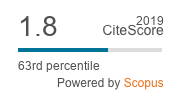The Spanish company in China: Entry forms and barriers to internationalization
Abstract
Purpose: The Chinese market is a sought-after investment destination for numerous companies across the world for their great sales potential. However, because of the complexity of the country, the investment should be made with caution. The choice of form of entry is one of the most crucial decisions that the company has to face when it decides to undertake an internationalization process. This paper aims, first, determine the form of entry used by Spanish companies in China and what factors have influenced the choice, and secondly, identify what are the entry barriers that they have been found.
Methodology: To answer these questions interviews were held with managers or heads of the department involved in the internationalization process of fifteen Spanish companies from different economic sectors with direct investment in China.
Findings: As a result, we found that implantation in China has been a sequential process for the following reasons: lack of market knowledge, compulsory investment with a local partner or gradual commitment of resources. Once the company decides to settle permanently, the form used is a subsidiary company, known in China as Wholly Foreign Owned Enterprise.
Regulatory and bureaucratic, cultural and language, competitive and risk of imitation, human resources and, finally, informal barriers have been identified by companies during their internationalization process in the Chinese market.
Originality: More studies like this are needed for shed light to the internationalization process in this market for being so culturally different to Spanish and so unknown for not being the first destination of the Spanish company historically.Keywords
Full Text:
PDF[es]DOI: https://doi.org/10.3926/ic.694
This work is licensed under a Creative Commons Attribution 4.0 International License
Intangible Capital, 2004-2025
Online ISSN: 1697-9818; Print ISSN: 2014-3214; DL: B-33375-2004
Publisher: OmniaScience








